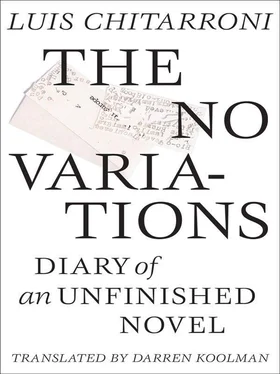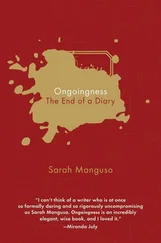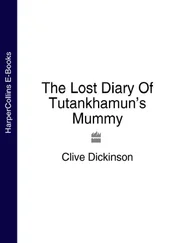Deborah Dubois Verdoux
Letter to Artemisia Gentileschi
Hilarión Curtis Ertebehere: A writer, dead almost six decades. Agraphia ’s most assiduous contributor and its Canterville ghost. Indeed, he was more than just a contributor to Nicasio Urlihrt, who said he was “the legend I’d wanted to be” … To his other descendants, Curtis was just another Argentine writer, but according to another exegete, Federico Prosan, he was “The most extraordinary Latin American writer you can imagine: typical and, at the same time, completely atypical.” Although none of Urlihrt’s forefathers had his surname, it is certain he’s Curtis’s direct descendent, his grandson.
(See also “The Seychelles.”)
Urlihrt was a German from Bavaria: proof in the Almanach de Gotha
Eccles, Ciaran: wrote under countless pseudonyms, including Lord Swimmingpool, Eliseo Arias, Sabás Salazar, Sal Simpson.
Oliverio Lester: (see Liborio Treles).
Cora Beatriz Estrugamou. Primary studies at the Mallincrodt College then, immediately afterwards, lottery of cards, escoba de 15, truco, canasta, card routines. Backgammon. Chess. Go, Mahjong and Tarot, luck and anarchy. Never learns to draw. First happy book: Unfavorable feast . Later: We Visited, Sleep of Night, Original Sins .
Her poetical works. Her versatility. The little that’s known about her. The pseudonyms.
A Night is the Lifetime Stars (Calderón), Biography of the Imagination, Original Sins …
The Place of Apparitions , her unfinished novel and a smattering of short stories, and The Times , which collects all her theatrical works ( Kropotkin’s Closet , etc), published under the pseudonyms, Clara Gazul, Elena Sombra. There are some legendary stories about Elena, some disseminated by her ex-husband, but it is certainly untrue that she resurfaced in Italy as the interior designer of the Gnu house (which her ex-husband, by then senile and reduced to a state of infancy, thought a belated tribute) ( Principles of the Imagination on the Other Side of Sleep , translated into Spanish in the early seventies, in Chile).
Lord Swindon: see Museum, Sherbet Aria .
Felipe Luini (Buenos Aires, 1938). His first book, Misery of a Realist , won the [national award for unpublished literature] critics award. This was followed by Stepping into the Dubious Daylight, Someone Else’s Dream, Foolish Verses , and Reckonings of the Possible (poetry). In 1992, the novel Noisy Deaf , which chronicles the adventures of a few Buenos Aires teachers during a vaccination campaign, won the municipal prize. In 1997, he was touted to be awarded for The Redskins , an atrabilious collection of short stories that didn’t seem to have any endings, or which actually didn’t have endings (since, according to the author, there was a secret unity that renders the collection a single novel), and which was therefore thought innovative, or reproductive of what was once innovative. The theme of the extermination of the local Indian populace counterpointed the extermination in the seventies of all talented primary school children. In the early 2000s, during his self-imposed exile in Barcelona, the author’s last three works — the titles of which are all proper nouns — attracted both popular and critical attention. But [alas] we cannot recall the titles. It was the director of the adapted movie who used the title Noisy Deaf (movie title),
In the letters Eiralis refers to plagiarism
Irene Inauda: the journal’s most recent [decent (a misprint)] contributor is a figure of widespread, even international, notoriety with a multifaceted profile [what the heck’s a multifaceted profile?] that this brief annotation could hardly limn [or do justice to]. Born to a good Argentine family of the patrician class, she had early — one could even say immediate — access to the world of haute couture, of high society, and as she grew, so did her admiration for this world and the people in it so that, remarkably, when she was barely out of adolescence, she was already a seasoned socialite. Her parents and grandparents were and continue to be prominent cultural and political figures in Buenos Aires. In the early sixties, there wasn’t an exhibition, parade, or other significant “happening” they didn’t attend. And although her father, a prominent lawyer, used to undermine — as a patient does to his therapist — all these past ticker tape events and the part their family played in them, saying that the best thing about the era [decade] was the stuff that came out of the printing presses, she always felt she was a precocious [and privileged] witness of that era, and afterwards, a victim of the one that followed.
Eduardo Javier Manjares. Spanish writer and editor, born in Russia in 1939. After writing his first Catalan volume and an essay on the English translation of the poet Bernart de Ventadorn, Manjares founded — in more than one continent — quite a number of publishing houses with the honorable aim of reviving that exquisite though forgotten trade of literary piracy. Within Spain’s piratical publication industry, his collections, Caliban, Etiquette, Distance, and — the most frequently discussed — Estrambote were unequaled. In 1975, he published The Last Days of Ernest Fenollosa , an imaginary chronicle about the sufferings of the man who made Ezra Pound believe he could translate Chinese poetry. Then, in 1978, there was Southeast Postal , a major collection of masterworks — half of them cryptic, half touristical, the latter composed in melodic hendecasyllables — was inspired by a trip to various places in China and India. In one story, there’s an Asturian living in Albi; in another, a Manchegan living in Laos; and in yet another, a Valencian in Cambridge and London. Such geographical versatility or promiscuity was perhaps the most appealing aspect of the collection, whose title is taken from one of the stories. The author himself believes this to be the case. Later, he began manifesting a double incapacity — as author and publisher — to the latest literary trends. His final publication (under the pseudonym: Andrés Zubillaga), Concise Dictionary of Detectives , was prompted by his passion for the kind of data that’s correct, exact, the kind that makes a man seem wise. His hatred of progress, of technology, the Internet, made him a pariah. “I’ve been using an Underwood typewriter since I was twelve. The only literature I understand and admire is the acoustic kind: inspiration without style, reality and typing . But now that there’s a fashion for imprecision, gracelessness, and such a paucity of great literary role models, and now that the Internet whips up the masses in an atavistic frenzy, I’ve become in my antiquity an ogre under a bridge, or less dramatically, a footnote.
Note: In 1956 in Buenos Aires and 1962 in Gerona (postmarked Bilbao), respectively, Nicasio Urlihrt and Javier Manjares published similar works under the same pseudonym, Macabru (See Macabru). The reason being that both Nicasio and Javier liked to be called Macabru in their respective cities. Macabru, an exotic, vaguely oriental appellation.
Cristóbal Niaras: expounding on the work and reputation of a critic of Niaras’s eminence would exceed by far the space designated for these merely informative outlines, but because this rector’s professional competence has been brought under continual scrutiny ever since his journal put that special issue in circulation …
Amadeo Arancibia Loayza (Buenos Aires, 1940—Buenos Aires, 1999). Discreet, fantasmal, and very prolific, Amadeo was known by the members or inductees at Agraphia as “Dos de Nosotros” or “Two of Us.” [because] He was fat, victim of a hereditary obesity that caused him much professional inconvenience, in spite of his exquisite Spanish. “A translator of disarming honesty and a writer of such reticence” according to NU, “he deserved an honorary box in the River Plate theatre of neglect …” Only a single collection of poems: Vereda de los impares .
Читать дальше












